Venice High School in Los Angeles Public School District has a long, proud history of student activism. Photo from the Los Angeles Public Library photo collection.
Four days before the end of the school year, Venice High School students, organized by the Black Student Union and the Chicano Student Movement of Aztlan, walked out of class to protest their principal allegedly firing an African American college counselor.
But that’s just the tip of the iceberg.
This post originally appeared in The Progressive.
Complaints against Principal Oryla Wiedoeft had been brewing since she arrived a year and a half ago. Some students complained about a repressive dress code. Others were frustrated by her suppression of a movement to opt out of standardized tests.
Protests and free expression are part of the rich history of Venice, California. Venice’s unique cultural diversity is protected by law, and many officials have built careers celebrating it. L.A. City Councilman Mike Bonin shared a video of his Venice field deputy gleefully marching in the recent Gay Pride parade. U.S. Congressman Ted Lieu, who represents the area, is an outspoken critic of Donald Trump. In the wake of Trump’s threats to crack down on immigration, the L.A. school district passed a resolution to make schools sanctuary sites for immigrant families.
Yet, according to a parent and a teacher I interviewed, when Venice High students planned a demonstration in support of immigrants last winter, the principal sent the school police to break up their meeting, saying the groups were becoming too radical.
One student said of the school principal: “She’s not for our trans students. She’s not for our students of color. She’s not for our undocumented students.”
If free expression is so widely accepted in Venice, why is the principal trying to stop it? The answer may have everything to do with appearances and market competition.
“We support cooperative education when it teaches our kids to go out and get work,” Yohuru Williams, historian and author of Teaching US History Beyond the Textbook,told me. “But we don’t say we should teach kids to make our community better, even though they’re both beneficial to our form of government,” he explained.
Some say Principal Wiedoeft discourages protest and inquiry because she is trying to compete with charter schools. In the competitive, market-based view of public education, schools compete by promoting a brand that will appeal to certain kinds of students. Kids who bring the highest test scores make the school look good, especially on yelp-like websites that rate schools at a glance.
The Los Angeles School District has defended the principal, touting the higher test scores, lower suspension rates and higher enrollment during her tenure. For many in the community, those achievements don’t tell the whole story.
“There is no inherent tension between academics and social justice.”
The ACLU issued a report last year condemning the enrollment practices of one in five California charters for targeting certain students, leaving the harder to teach—and more expensive—students in the public schools. One of the methods cited in the report to discourage immigrant families from applying is to require birth certificates or other legal documentation. But Venice High has started doing the same thing. Its website states that a child’s birth certificate “is required to receive an enrollment package.”
“Up until last month, robo calls in Spanish weren’t available to our monolingual Spanish speaking parents,” student Faith Freeman told the news reporter. “And this school is about 65% Spanish speaking.”
“There is no inherent tension between academics and social justice,” said Williams, who is also incoming dean of College of Arts and Sciences at the University of St. Thomas in St. Paul, Minnesota. “Academic pursuits that are rooted in problem solving and critical thinking exercises should inspire inquiries that will lead students to larger questions of justice and equity common to social justice.”
Whether or not the students are right in saying that the principal is biased, one thing is certain: The market system rewards such selective behavior. It looks like this public school is taking a cue from its charter competition.

